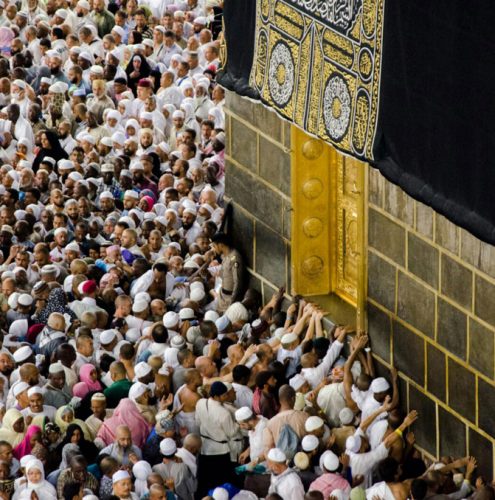Performing Hajj is a sacred obligation for eligible Muslims. Understanding the visa process and associated costs is essential for a successful pilgrimage. This guide provides an overview of Hajj visa fees, requirements, and key considerations.
Hajj Visa Fees
According to the Ministry of Hajj, Hajj visas are free of charge. They are typically issued from Mid-Shawwal until the 25th of Dhul-Qa’dah each year. While the visa itself is free, it’s important to be aware of other potential costs:
•Service Provider Charges: Hajj visas are not issued to individuals directly. Pilgrims must apply through a licensed travel agency. These agencies will have their own charges for services, including accommodation, transportation, and other logistical arrangements.
•Unified Agents Office Fees: Pilgrims are required to submit certified checks or cashier checks payable to the ‘Unified Agents Office’ in Jeddah for pilgrimage services. These services include guides, Zamzam water agents, accommodation in Mina and Arafat, and transportation costs. These fees can vary, and children between seven and fifteen years old typically pay half the amount, while children under seven do not need to pay.
•Other Potential Charges: Depending on your nationality and specific circumstances, there might be additional charges incurred during the visa application process.
Hajj Visa Validity and Requirements
•Validity: Hajj visas are specifically for Jeddah, Makkah, and Madinah and are not valid for work or residency.
•Passport: A passport with at least six months validity and two adjacent empty visa pages is required.
•Photograph: One recent passport-sized color photograph with a white background, showing a full-face view.
•Application Form: A completed application form, signed and stamped by the authorized travel agency.
•Mahram (for women): All women are generally required to travel for Hajj with a Mahram. Proof of kinship must be submitted. Women over 45 may travel without a Mahram with an organized group, provided they have a notarized letter of no objection from their husband, son, or brother.
•Roundtrip Ticket: Proof of a non-refundable roundtrip ticket with confirmed reservations.
•Vaccination: Proof of vaccination for meningitis and ACYW135. Children up to 15 years old also require vaccination reports for polio and meningitis. Vaccination certificates should be issued not more than three years and not less than 10 days prior to entering Saudi Arabia.
•Legal Residence Status: Applicants who are not nationals of the country they are applying from must submit documented proof of legal residence status.
•Age: No applicant under 18 will be granted a Hajj visa if not accompanied by their family.
•Conversion to Islam: If applicable, an Islamic certificate notarized by an Islamic Center.
Important Guidelines
•Vaccination Certificates: Carry your vaccination certificates for inspection upon entry.
•Food Products: No food products are allowed into Saudi Arabia.
•Entry Deadline: The last day to enter King Abdulaziz Airport in Jeddah for Hajj is typically the 4th of Dhu’l-Hijjah each year.
•Passport Custody: Upon arrival, pilgrims hand their passports to the Unified Agents Office representatives for travel formalities.
•Departure Deadline: All pilgrims must leave Saudi Arabia after Hajj no later than the 10th of Muharram each year. Overstaying is strictly forbidden.
Always verify information with official sources and your chosen Hajj travel agency for the most accurate and up-to-date details.

